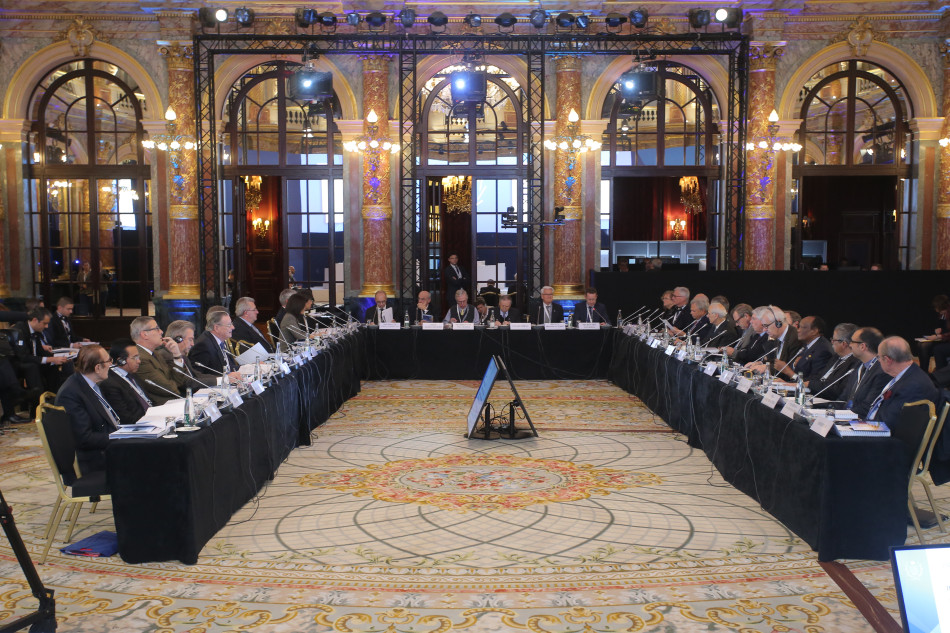Council unveils 2016 development programme

Today’s meeting of the World Council for Automobile Mobility and Tourism set out an ambitious agenda for the coming year, focusing on the implementation of a new business plan, increasing club development and strengthening the advocacy position of the FIA and its member clubs.
Addressing the meeting, Brian Gibbons, Deputy President, Automobile Mobility and Tourism said: “The past year has been characterised by progress on multiple fronts and I believe we are well placed to deliver on our objectives and also respond to an increasing agenda. We are gearing up to not only deliver on our [2014 Mobility Plan] but also to produce an enhanced mobility agenda encapsulating our needs around policy advocacy and service enhancements. Work on these agendas is already underway.”
At the top of the council’s agenda is the implementation of a new business plan for 2016. This centres on four key strategic aims: achieve global club development through learning; positioning the FIA as a global advocate for safe, accessible and sustainable mobility; supporting clubs in providing services to members and communicating effectively with mobility regions and clubs.
In the area of club development the FIA is targeting the provision of learning opportunities to all member clubs through the expansion of the FIA University to include a Senior Management Course.
Increasing the capacity of clubs will also involve the continued delivery of the Club Development Programme. The council also pointed to the value of the annual Mobility Conference as a forum for knowledge exchange and networking and revealed that following the 2016 conference in Helsinki, the 2017 edition will take place in Tokyo.
The council also committed to further supporting clubs in their provision of services to members through advancing the development of the FIA Driver Training Certification Programme announced last year and by undertaking a feasibility study to evaluate opportunities for the FIA to support a network of driver training centres.
The council also agreed to strengthen the position of the FIA as a global advocate for safe, accessible and sustainable mobility and in particular referenced active participation in key international forums such as the ITF Summit, the World Economic Forum and the Clinton Global Initiative.
In this regard, it was revealed that FIA Secretary General for Automobile Mobility & Tourism Andrew McKellar will present the FIA’s recently published global agenda on C02 emission reduction to Sunday’s Transport Day, organised in the context of the COP21 talks in Paris.
Global advocacy on road safety is set to be enhanced through the activities of the recently launched FIA High Level Panel for Road Safety as well as via support for the UN Special Envoy, the Action for Road Safety Campaign and the Road Safety Grants Programme.
Finally, the council noted the continuing improvements in communication with FIA regions and with member clubs but added that while it will further roll out the FIA Connect platform to support effective governance and decision making, a more broadly effective platform will be sought.
Reflecting on the past year, Secretary General McKellar added: “It’s been a busy year for Mobility, a year in which we have seen substantial structural change within the organisation. It’s also been a key year in terms of building our advocacy capacity, particularly on the road safety front.
“We have built the capabilities of the team in Paris and we are supporting clubs through the grants programme, but also working on issues such as connectivity, sustainable mobility, accessible mobility and so on. We have a much stronger focus and a much stronger team than we had 12 months ago.”
Looking ahead, McKellar said the FIA would place particular emphasis on club development. “One of the areas we have to look at in greater depth is club development: engaging with clubs, supporting them in developing new services, increasing their commitment towards members and there are a number of initiatives we have to look at in that regard. We really do want to strengthen our focus on what we can do there.”

 Facebook
Facebook Twitter
Twitter






